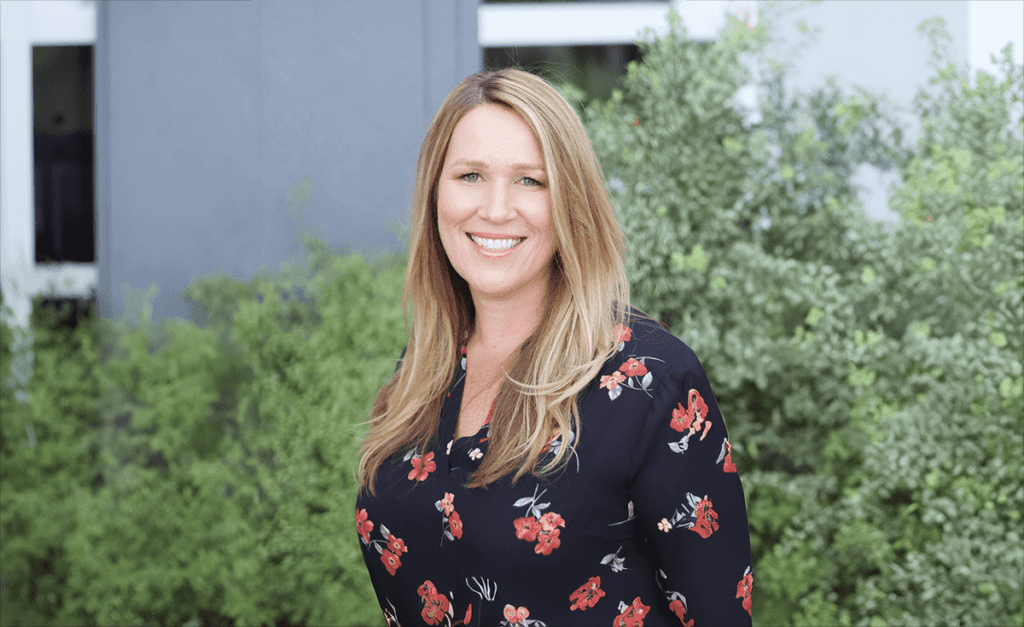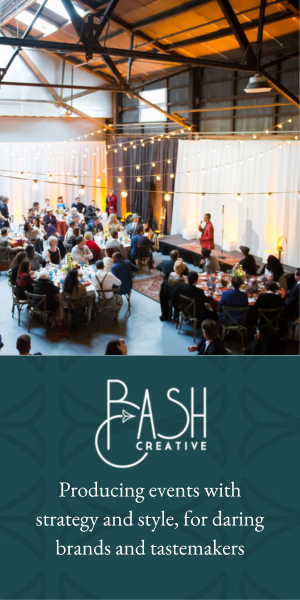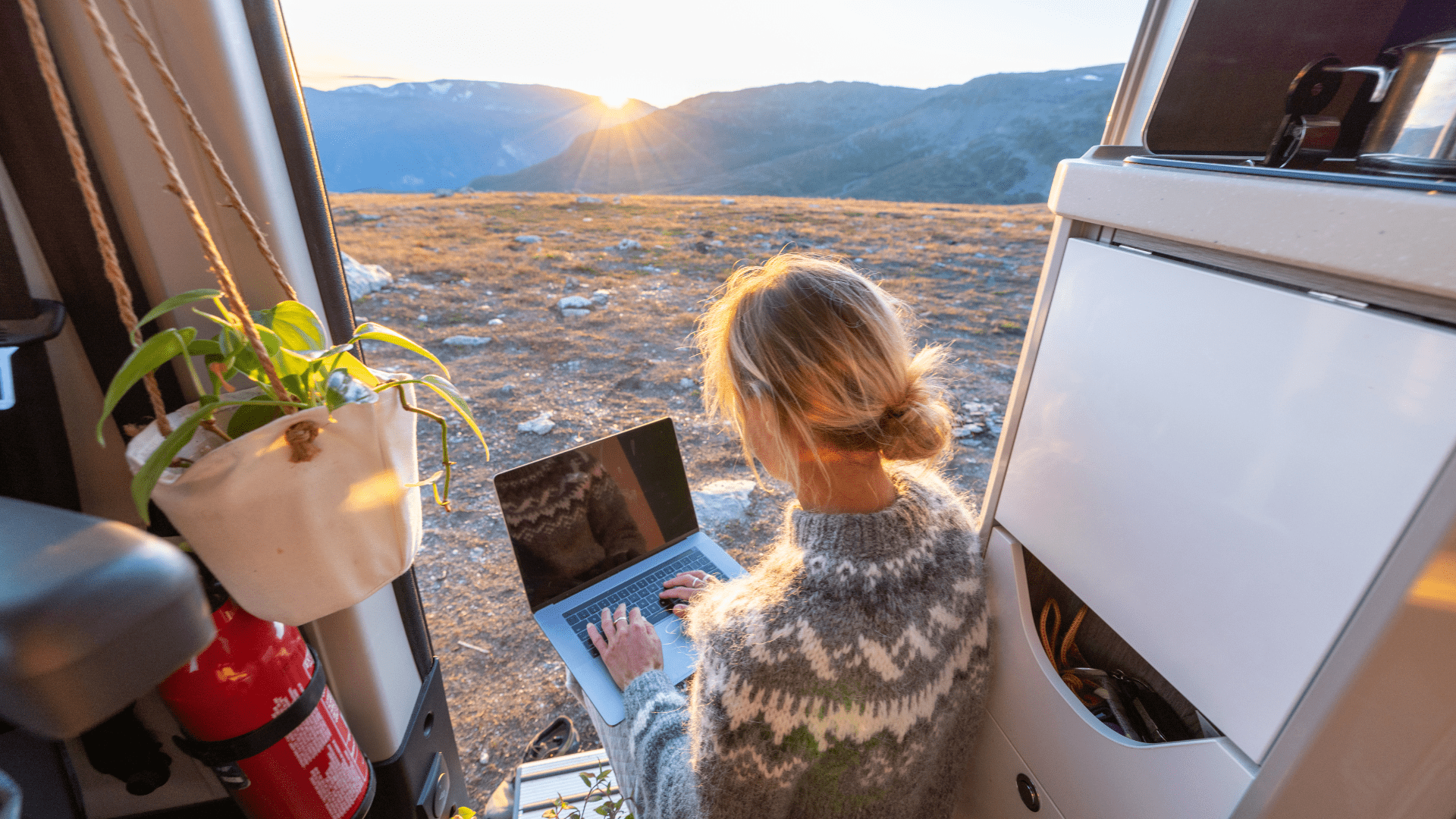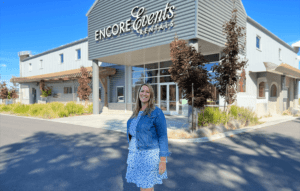Bridget Doherty is the co-owner and president of Encore Events Rentals, a premier events rental company in Northern California, with three locations serving Wine Country and the San Francisco Bay Area. She is also the co-owner of Cal-West Rentals, a full-service heavy equipment company. She’s been an entrepreneur for 24 years and a Founder for nearly 14. In this interview for Follow the Founder, we talk to Bridget about her journey to entrepreneurship and the lessons she’s learnt on it.
How did Bridget become a Founder?
Bridget’s journey is rare: she has only ever been an entrepreneur.
“I own both Encore and Cal-West with my brother: I run Encore, and he runs Cal-West. I took over Cal-West rentals in January of 2001, right before I graduated college after my dad passed away suddenly. Cal-West was a small family business at the time. They only owned and offered heavy equipment rentals. It was an opportunity to step in, and I took the chance. Later on, in September 2010, we decided to found Encore.”
Even though Bridget got into business sooner than she had anticipated, she took it as an opportunity to get an education in business. Later, after co-managing Cal-West with her brother and on-the-ground training for nine years, she made a conscious decision to open Encore. Having matured as an entrepreneur set her up to be successful when establishing and scaling Encore.
“When my brother and I became partners, we quickly recognised that we needed a business physically and metaphorically large enough to support us. We are both alpha personalities, we both have strong thoughts, opinions and drive. It made sense for us to pursue building a large company.
“When we started, Cal-West had a very small event rental division, we only offered a couple of lines of china for event rentals. So we pursued to grow both sides of the company not knowing exactly where that would land. We went through several offerings, trying to buy several different businesses. One was an equipment company, another an event company, but they fell through. It was only our third or fourth attempt, when we purchased a small and poorly-ran event rental company in Healdsburg that we recognized had a lot of potential and things started to turn around.
“So that was how we started Encore. We created a new brand and ran everything separately as a new corporation. We thought it would take a small division of Cal-West while having the potential to turn it into a much larger standalone company, which is what happened.”
Even though she is the co-owner of an events rental company, Bridget’s passion is not necessarily the events themselves but making people happy and building a company that the employees enjoy working for.
“My drive is not the widgets that we rent or the services we provide. Whether it’s a giant tractor or a plate, is just a means for me to support people. The motivation has always been the people and their lives. Giving people and their families opportunities. How we do it is my least motivating detail. I mean, it’s fun, and we have very pretty and unique offerings. So that’s absolutely an entertaining and enjoyable part of my job. But having the success to grow and support people and offer more to our employees is what’s most important.”
Is formal education a must-have?
We don’t often meet people who have been successful entrepreneurs for 24 years. In fact, only 25% of the businesses make it beyond 15 years [1]. Despite her accomplishments, this was far from the career path Bridget had envisioned for herself.
“I don’t have a business degree. I double-majored in Political Science and Sociology at the University of Southern California. I planned to be an attorney, make money to pay off my last school loans, and then do what I could to save the world. I was on the non-profit stance.”
Not only did Bridget not have a business degree, she took no business classes at all before she became a Founder. She learned the hard way, by trial and error while leaning into her natural ability to listen to her gut and her formal education that equipped her to better understand people and how they work together.
“I made a conscious effort to avoid all business classes in school. They were always in the morning and five days a week. So I ended up in business with no preparation at all. I decided to sign up for local classes at the junior college to learn the basics: actuarial, accounting, business planning. At that point, I needed to educate myself at least a little bit in a more formal setting, even though I was learning a lot on the go. But these were the only formal business classes I took.”
This story is more common than you might expect: According to an Intuit survey, only 9% of business owners have a business-related degree [2]. Most are self-educated or learn as they go. What is crucial, however, is to foster a growth mindset and to be willing to advance your knowledge no matter how long you’ve been on the job. After nearly 24 years in business, Bridget is still learning.
“5-10 years into it, I thought about getting an MBA. I debated that for a couple of years. When I strongly considered it, I was in my 20s. But up to the age of about 35, I worked 60-70 hours a week. I like learning the theory, and I’m sure I would have taken on new skills and perspectives that could only be positive, but I didn’t have the time. At that point, I was working a crazy amount of hours. I wouldn’t have managed to free up enough space for school.”
As a Founder, you have to be ruthless when choosing your priorities. Learning new skills requires a certain level of attention and energy, which feels even more taxing when you have to constantly develop your company and support your team. The extra energy needed could cut into your spare time. Without putting aside time for hobbies and relaxation, you will not be able to show up at full capacity and be your best self. Work-life balance is getting the priorities right.
“Afterwards, when I made the transition to more healthy working hours, I started enjoying life more. I was at the point where I knew this was my career. I felt very comfortable and happy. So I decided not to go back to school. It was the right decision, and I’m grateful for the work-life balance I created for myself.”
Learning resources Bridget recommends
Gaining knowledge doesn’t only amount to formal education and getting a certificate. Education comes in all shapes and forms: mentorship, support groups, reading, and discussions with others in the field. UPS found that 70% of entrepreneurs who received mentorship had firms that lasted at least five years [3]. Bridget is another successful Founder who contributes to these stats. Most businesses fail between the third and fifth years, so mentorship can be the make or break of your business’ survival!
“I’ve been working with a business coach for 15-17 years. That’s been a huge support for me. I hired him when my brother and I first became partners to make sure we were set up in a way that we’d succeed. I had heard multiple stories and statistics that partnership is hard. It’s even more difficult when you’re in business with your family. My coach helped put some boundaries, rules and processes for my brother and I and our company. He now works with me and my senior management team. Currently, it’s more group-focused than individual.”
She is also a big fan of reading and group work.
“Alongside everything else, I’m still reading books, and I’m still looking for education, just not in the formal classroom style. I’m a big Brene Brown fan. Right now, my senior management and I are working through “Dare to Lead”. I also read business books, but I am not like the people who read everything out there. It would be amazing, but it’s just not me.
“We also use an EOS (Entrepreneurial Operating System), which is a platform around operational organization and meaningful meetings. We run it through their online platform Ninety.io. That has been huge for us. We’ve been doing it for the last five or six years, but we went all in through their systems. We have weekly meetings and set quarterly goals and annual goals, or simply work through issues.”
To continue learning about Bridget’s experience and get more tips, tricks and advice from Founders in all parts of the journey, follow us on Follow the Founder. You can also find us on Instagram or LinkedIn.
References:
[1] The Percentage of Businesses That Fail (Statistics & Failure Rates), Luisa Zhou
[2] 20 small business financial literacy statistics to know in 2024, Myranda Mondry
[3] Unlocking Startup Success: The Vital Role of Mentorships, Noorhan AlZann
https://www.tamkeen.bh/en/mentorship-startups/#:~:text=A%20survey%20conducted%20by%20UPS,been%20mentored%20by%20successful%20entrepreneurs.
[4] What Percentage of Small Businesses Fail and How to Avoid Being One of Them? Chad Otar https://www.forbes.com/sites/forbesfinancecouncil/2018/10/25/what-percentage-of-small-businesses-fail-and-how-can-you-avoid-being-one-of-them/
Want to Keep Reading?
#GIRLBOSS: Sophia Amoruso
Sophia Amoruso shares how she went from dumpster diving to founding one of the fastest-growing retailers in the world.































